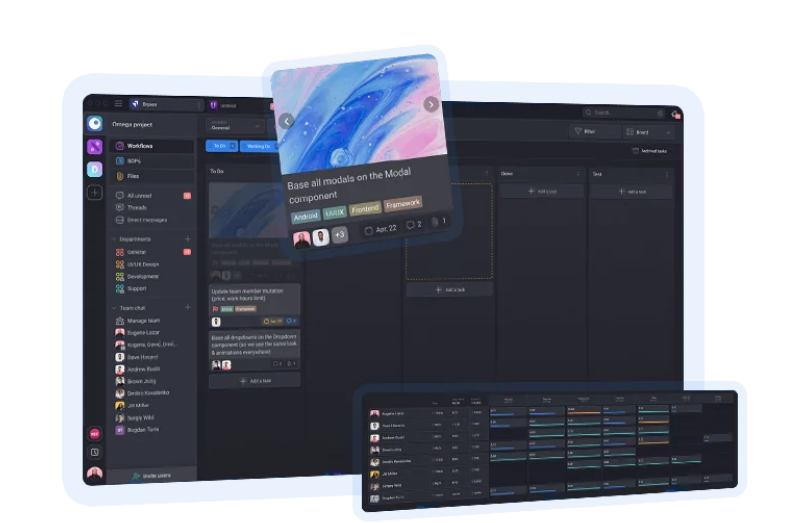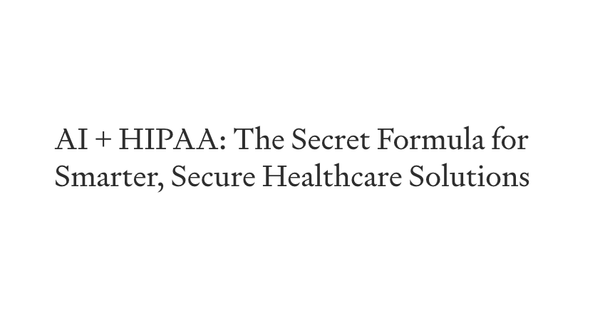Healthcare Software Development Project Management: All-in-One Guide
Table of Content
Introduction
Healthcare software development is not just about building applications; it's about empowering healthcare providers and patients with the tools they need to make informed decisions and improve overall well-being.
Embarking on the journey of healthcare software development not only carries a sense of nobility but also promises substantial profitability. As per Statista's findings, the global digital health market is projected to reach US$657 billion in 2025.
However, healthcare software development projects are complex endeavors that require careful planning, execution, and management to ensure successful results. Effective project management in this industry is essential for delivering high-quality healthcare software solutions that meet the needs of patients, healthcare providers, and other stakeholders.
What is Healthcare Software?
Healthcare software plays a crucial role in the medical field, enabling doctors to provide more effective treatment and improved patient care. Developed by healthcare companies, this software aids in managing clinical records, sharing information between medical professionals, and tracking patients' health history. It facilitates seamless communication between departments within hospitals or clinics, enhancing the overall quality of care provided.
Custom-made solutions created by healthcare software developers empower institutions to efficiently manage patient data, granting easy access to records, progress reports, and treatment updates. With this software, healthcare professionals can collaborate and monitor patient status from anywhere, ensuring optimal healthcare delivery.
Best Practices for Healthcare Software Development
To ensure the success of healthcare software development and steer clear of potential failures, it's crucial to embrace the following best practices.
Precisely Identify Your Product's Target Audience:
While this step holds importance in any software development process, it demands more attention in the medical field. This is due to the inherent variations in features and technologies required for medical staff tools versus administrative applications. For example, when handling sensitive patient data, incorporating robust security measures like two-factor authentication becomes paramount. Similarly, when designing consumer-oriented apps, developing a clear understanding of the audience helps personalize their user experience and enhance satisfaction.
Prioritizing User-Centric Design: Enhancing Healthcare Software Development
Developing healthcare software poses unique challenges that demand focused attention. Addressing industry-specific concerns such as mental and physical distress is paramount to ensure a satisfactory user experience. Additionally, inclusivity plays a vital role, necessitating the creation of medical solutions that cater to the needs of senior users and individuals with cognitive, auditory, or visual impairments.
Scalability
Another crucial aspect is scalability. As healthcare solutions gain traction, the target audience and their requirements are bound to expand. Hence, designing a product that can seamlessly scale up becomes important.
Important Factors to Take into Account for Healthcare Software Development Projects
Before diving into healthcare software development, it is crucial to lay the groundwork. Begin by establishing a clear vision of the solution you aim to build and set realistic expectations. This approach will help you to achieve the desired result and ensure timely delivery to the market.
Here are the primary factors to consider when developing a healthcare software:
Define the Project Scope:
The project's scope plays a vital role in determining the final cost and delivery timeline. Take into account the desired features and target platforms for your software. Understanding your target audience and conducting thorough user research will help you identify their existing tools and preferences. This knowledge will empower you to offer a more efficient and effective solution, addressing the limitations of existing applications.
Choose the Right Technology Stack for Healthcare software development projects
When developing healthcare software development projects, selecting the right technology stack is vital to ensure a robust and efficient solution. With plenty of options available, it can be overwhelming to make the optimal choice. However, by considering factors such as scalability, security, interoperability, and industry standards, you can narrow down the possibilities.
For instance, a technology stack comprising Node.js for backend development, React for frontend, and MongoDB for data storage can provide a scalable and responsive healthcare application.
Alternatively, a stack consisting of .NET for backend, Angular for frontend, and SQL Server for data management can offer enhanced security and interoperability. So depending on your requirements, choosing the right technology stack is crucial for future success.
Importance of Project Management in Healthcare Software Development
Trying to manage a project without project management is like trying to play a football game without a game plan. — Karen Tate
Project management plays a pivotal role in healthcare software development, ensuring its success and effectiveness. By employing effective project management methodologies, healthcare software development teams can streamline processes, maximize resource allocation, and meet critical deadlines. Project managers oversee the entire development lifecycle, from initial planning to implementation and maintenance, ensuring clear communication, collaboration, and coordination among team members.
Project managers also have a crucial role to ensure that the healthcare software complies with HIPAA and GDPR. This is done to safeguard sensitive patient data.
With strong project management in place, healthcare software development projects can be executed efficiently, delivering high-quality solutions that meet the unique needs of the healthcare industry and ultimately enhance patient care.
Project Management Methodologies in Healthcare Software Development
In healthcare software development, traditional project management methodologies follow a sequential, linear approach, where each phase is completed before moving on to the next. This method emphasizes thorough planning, documentation, and a clear project scope.
On the other hand, agile methodologies, such as Scrum or Kanban, promote flexibility, collaboration, and iterative development. Agile methodologies focus on delivering incremental value and adapting to evolving requirements, allowing for faster response to changes and improved stakeholder engagement.
Selecting the most suitable methodology for healthcare software projects depends on factors such as project complexity, team dynamics, customer involvement, and the ability to accommodate changing requirements. It is essential to assess these factors to determine whether a traditional or agile methodology is more appropriate for a particular healthcare software development project.
How Teamly can Assist in Healthcare Software Development Project Management?
The complexities of healthcare software development demand a project management approach that can navigate regulatory requirements, stakeholder expectations, and technical intricacies. One platform that stands out in facilitating efficient project management is Teamly. With its comprehensive set of features tailored for healthcare software development, Teamly provides valuable support throughout the project lifecycle.
Benefits of Teamly

Task management features enable you to create and oversee tasks related to healthcare projects, including clinical trials, medical device development, and patient care. You can assign tasks to individuals and establish deadlines to ensure everyone stays on schedule.
Enhancing team communication and collaboration, Teamly fosters improved interaction among healthcare professionals, including doctors, nurses, researchers, and administrators. Real-time sharing of project updates, feedback, and files keeps everyone informed and involved.
Effortlessly track the time dedicated to healthcare projects by utilizing the time-tracking feature offered by the software. This functionality helps monitor progress and identify areas where enhancements can be made.
With the reporting capabilities of Teamly, you can generate various reports for healthcare projects. These reports encompass progress updates, budget analysis, and team productivity assessments. These reports play a crucial role in evaluating project performance and identifying opportunities for improvement.
Summary
In conclusion, successful healthcare software development projects require effective project management to ensure high-quality solutions that meet the needs of patients, healthcare providers, and stakeholders. By following best practices such as identifying the target audience, prioritizing user-centric design, and considering scalability, teams can lay a strong foundation for their projects.
Factors like defining the project scope and choosing the right technology stack contribute to the project's success. Project management methodologies, whether traditional or agile, play a vital role in coordinating teams, managing risks, and ensuring adherence to regulatory standards.
Teamly, with its task management, team communication, time tracking, and reporting features, offers valuable assistance in healthcare software development project management. With the right approach and tools in place, healthcare software development projects can make a significant impact on patient care and the healthcare industry as a whole.











